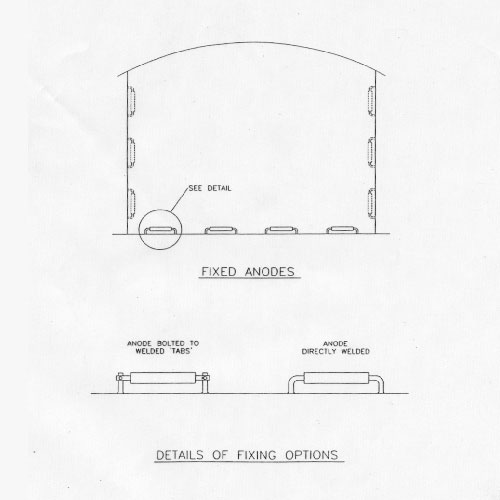Storage Tank Cathodic Protection
Buried and on-grade storage tanks are in contact with the soil and hence it is externally cathodically protected
Tanks cathodic protection could be made through sacrificial anodes (not recommended) or through impressed current systems
Impressed systems could be made utilizing either deep well, shallow horizontal groundbeds, distributed anodes system or anode mesh underneath storage tanks.
Before any cathodic protection is to be made tank shall be electrically isolated from piping (through IFK) and tank earthing shall also be considered
Buried and on-grade storage tanks are in contact with the soil and hence it is externally cathodically protected
Tanks cathodic protection could be made through sacrificial anodes (not recommended) or through impressed current systems
Impressed systems could be made utilizing either deep well, shallow horizontal groundbeds, distributed anodes system or anode mesh underneath storage tanks.
Before any cathodic protection is to be made tank shall be electrically isolated from piping (through IFK) and tank earthing shall also be considered
Protection current density of storage tanks is determined in accordance with soil resistivity
According to tank diameter the number of reference electrodes underneath tank is determined
Polarization cells could be attached to tank earthing to prevent current drainage to earthing network
Coating breakdown due to the presence of bituminous sand shall be a minimum of 25%
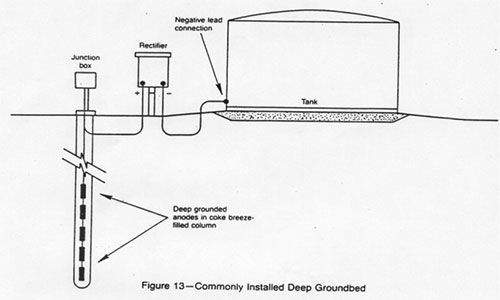
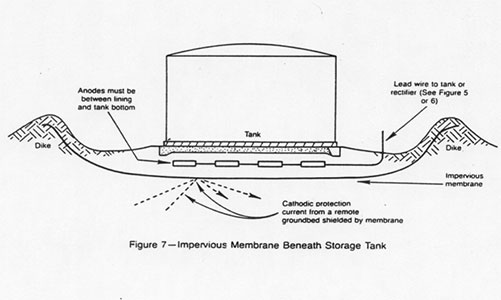
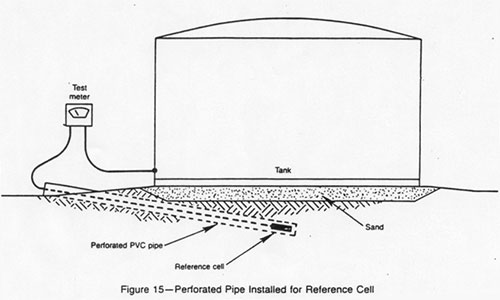
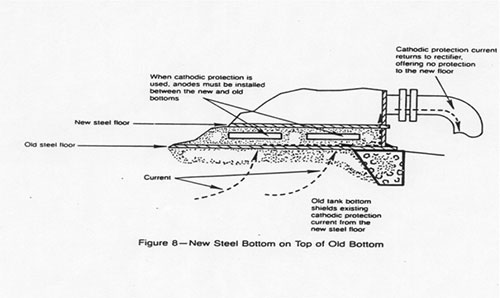
Internal Tank CP
Saline water is severely corrosive to carbon steel
Hence, internal CP is mandatory
According to the size of tank impressed current or sacrificial systems are implemented
In the case of saline water either sacrificial or impressed current system is implemented
If sacrificial CP is to be implemented then aluminum or zinc anodes are used
Zinc anodes shall not be used at temperatures above 50ºC
